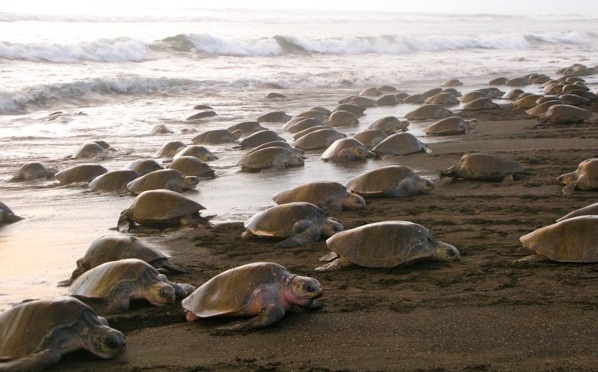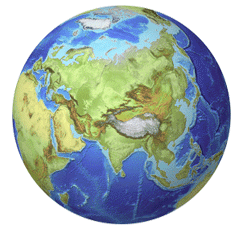 |
| Male | Female |
"Of the People. . . "
| Populate |
|
|||
| Population | ||||
| populous | ||||
| This animated population pyramid shows both age and gender of the United States population. | ||||
"Vox populi vox dei" 1 |
|
Population is a noun referring to: |
The number of living things inhabiting a particular area. In the commonly used sense, referring to the number of people residing in a territory. |
 |
|
Sea turtles coming ashore on a Brazilian beach to dig their nests stick together, we assume, for safety. |
|
Populate is a verb meaning to inhabit, reside, or occupy an area.
There is some minor disagreement on the earliest, extant use of the word population (1578) and populate (1552) with respect to inhabit or conquer.
1552, "foraging population"
In a description of the Conquests of the West Indies in 1560 is the sentence:
"They received their advise that neere at hand were great populations and soone after he came to Zimpanzinco."
The Pleaƒant Hiƒtoric of the Conqueƒt of the Weƒt India, now called New Spaine, by Hernando Cortes. page 130.
1574, from Middle Latin, populatus, past participle of populare "inhabit," from the Latin word, populus meaning "inhabitants."
Population "the degree to which a place is populated" is first recorded 1612, from Late Latin, populationem (from around: 470 CE, nominative case: populatio) "a people, multitude," as if a noun of action from Latin, populus meaning "people."
Hence populous means: heavily populated or densely settled with people.
Population explosion is first asserted 1953.
In 1960 there were 2.8 billion people on earth, in 2001 there were over 6 billion. That the population doubled in forty years is the largest and quickest increase in population in history.
The lighter shaded areas on this composite map of the planet reveals where the densest, electricity using populations reside.
Today, [see population clock] there are over 7.1 billion people meaning that the average area for each person on Earth is 120 per square mile or 47 per square kilometer of dry land. Since not all terrain or dry land is hospitable to residing populations,the amount of arable land available to support people is a better number to use with reference to population density.
1. Meaning that the expression of the people collectively reveals God's will, the phrase "The people's voice is God's voice" (also), was criticized by Francis Lieber, On Civil Liberty and Self-Government [1853], pp. 406-407.
He wrote, "The doctrine Vox populi vox Dei is essentially unrepublican, as the doctrine that the people may do what they list under the constitution, above the constitution, and against the constitution, is an open avowal of disbelief in self-government."
2.
 The eleven most populous nations.
The eleven most populous nations.
The nations in the world with the most extent of land.
A table showing six in ten people live in Asia.
Source: US Department of Commerce.
World Bank table of country-by-country population density.
Aristotle on common things | limits to population | Population wiki | Gender | Global challenges